Guillaume Néry
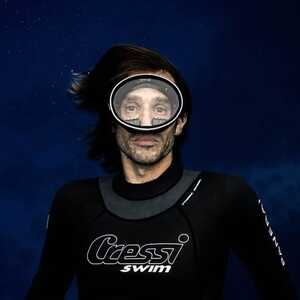
I grew up on the shores of the Mediterranean in Nice. Like all the people of Nice, the sea was my horizon and a playground during the summer holidays with my parents. At the age of 14, I discovered freediving by chance. It was love at first sight. I specialised in the ‘constant weight’ discipline (descent and ascent by strap), for the purity and simplicity of its approach. I've beaten the world depth record four times in the Rade de Villefranche and won two world championship titles. In 2015, I suffered a serious accident when I made the deepest dive in history at -139m, following a measurement error by the organisers. It was a near-death experience and I decided to step away from the pursuit of records to devote myself fully to sharing my passion through an artistic approach. I make short underwater films, such as Free Fall, Ocean Gravity and One Breath Around The World, filmed in apnea with Julie Gautier, the images of which are being shown around the world on the internet, and I take photos to bear witness to the wonders and richness of the aquatic world.
I make short underwater films, such as Free Fall, Ocean Gravity and One Breath Around The World, shot underwater with Julie Gautier, the images of which are being shown around the world on the internet, and I take photos to show the wonders and richness of the aquatic world. I also share my experience and knowledge at conferences for a wide range of audiences (companies, the scientific world, the general public, schools and universities). I recently took up writing, convinced of the power of words and language to stimulate deep reflection. I haven't given up on the big picture. I venture into it driven by the same thirst for ocean exploration and inner exploration. I train all year round with my club, CIPA (Centre International de Plongée en Apnée) in Nice, and at the same time, with my team, I have set up the BLUENERY ACADEMY, a freediving centre in Villefranche sur Mer whose programme is designed for beginners to reconnect as many people as possible with water and breathing.
My many dives in the world's seas and oceans over the last 20 years have brought me face to face with the destructive impact of human activities. Today, I want to use my voice to raise the alarm and relay the scientific message about this environmental disaster that is impacting all ecosystems.
I'm not a fish man. I'm an aquatic human being who freedives under the seas and oceans as an art of living.
Herbert Nitsch
Austrian Herbert Nitsch has explored the boundaries of human ability in the ocean’s depths time and time again, earning multiple world championships and 33 world records across all of the freediving disciplines — a feat unrivaled until today.
Unlike other elite freedivers Herbert is self-taught. He developed his own freediving techniques over the years, a methodology that largely differs from traditional styles. To advance in the sport, Herbert used the analytical and pragmatic approach of his profession as an airline pilot (captain). This allowed him to break with convention, which eventually led to No Limit freediving.
No Limit is the ultimate discipline in which by far the greatest depth is achieved with a weighted dive-sled and buoyancy device. Herbert’s pioneering spirit led him to the deepest freedive ever made, in a project called Extreme 800.
He reached 253m/830ft, a Guinness World Record, but suffered severe decompression sickness fifteen minutes after completing the dive. This resulted in multiple brain strokes, leaving him unable to walk, speak, or care for himself.
Not willing to accept his situation, he used the same insights into his psychology and physiology that made him a champion freediver. His recovery-methods were controversial, and he received little support, yet he continued undeterred.
Two years later, against all odds, Herbert is fit and freediving again.
His book “BREATHING IS OVERRATED, an Autobiography about Human Potential, a Pioneering Spirit and the Deepest Dive on a Single Breath” is available on Amazon worldwide in English and German.
Instagram @herbertnitsch
Facebook @FreediverHerbertNitsch
LinkedIn @herbertnitsch
Arthur Guerrin-Boeri
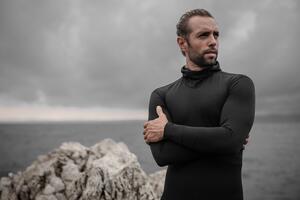
In the bustling streets of Paris, I was exposed to a world of art and culture that nurtured and inspired me from an early age. But deep inside me, there was this inexplicable attraction to the vast expanses of the ocean. So, at the age of 26, I decided to follow my instincts and dive into freediving, a discipline that was to transform my life. From the swimming pools of Paris to the pristine expanses of Finland's frozen lakes and the Mediterranean Sea, I pushed back the limits of my body and mind, setting 8 world records.
I finally realised that my life as a freediver and my vision, whether artistic or philosophical, could come together to accomplish a powerful renewal, using my sporting fame to become a committed athlete, a spokesperson who uses his body, his philosophy and his voice to inspire the public with his sensibility.
Arthur Guerrin-Boeri, https://www.arthurguerinboeri.com
Abdelatif Alouach
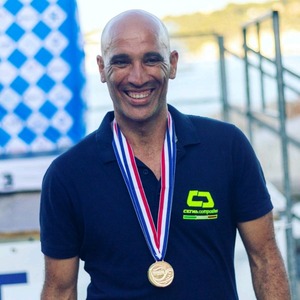
High-level sportsman, world record holder, five-time world champion, 17 times vice world champion, 2 world records and eight French records, 8 times French champion. I've gone from being just a competitor in 2018 to being one of the top three athletes in the world for the last 5 years, and to top it all off I'm organising the world freediving championship at my facility. I use my experience to pass on life values, motivational principles and philosophies for success in the professional world. I exchange ideas with people involved in other sports.
https://www.linkedin.com/in/abdelatif-alouach-984aa217a/?originalSubdomain=fr
Inès Leferme
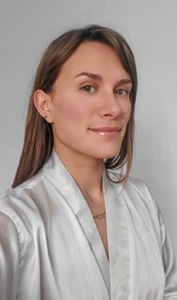
Inès Leferme is a doctoral student in philosophy at the University of Paris Nanterre in the Phylosophical Research Institute, in co-direction with the University of Lorraine at the Research Unit "Développement Adaptation Handicap laboratory" (DevAH).
Her research focuses on deep apnea as an immersive experience in an extreme environment, which she explores at the crossroads of phenomenology, physiology and cognitive science.
Under the supervision of Natalie Depraz (IRePh), Professor of Philosophy and the co-direction of Frédéric Lemaître (DevAH), Professor of Physiology, Inès Leferme is developing an experimental protocol combining physiological data and real-life accounts to study transformations in perception during immersion, in order to question the limits of lived experience and our way of inhabiting the world on the threshold of its extremes.
Frédéric Lemaitre
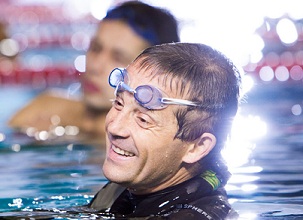
Frédéric Lemaître is Professor of Physiology at the Faculty of Sports Sciences- University of Lorraine. A member of the Research Unit "Développement Adaptation Handicap" (DevAH), he continues his research into the human body's adaptations to extreme conditions, including apnea.
A specialist in apnea physiology for over 20 years, Pr Lemaître, who is also a freediver and apnea instructor and has worked over the years to explain the various mechanisms that explain the prowess of apnea divers, as well as to prevent accidents involving them.
Today, he is focusing his research on the cerebral adaptability of freedivers, and is attempting to derive applications for various pathologies such as neurodegenerative or metabolic diseases.
In addition to his numerous publications, he is also the author of several books, including “L'apnée de la théorie à la pratique” (freediving from theory to practice) and “Le manuel d'entraînement à l'apnée” (freediving training manual), soon to be republished.
Fred Buyle
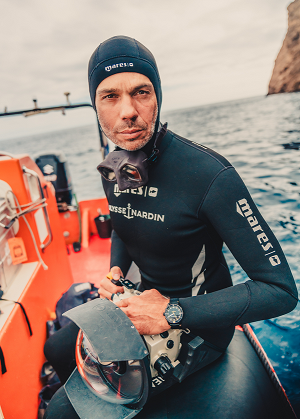
Born in 1972, Fred spent several months a year on the family sailboat during his childhood, he discovered freediving at the age of 10. As a teenager he continued to practice, and at 18 became a diving instructor and began teaching freediving in Brussels in 1991.
The following year he launched the AIDA adventure, the first entity to lay the foundations of modern recreational freediving.
Between 1995 and 2000, he set 4 freediving world records and won a world championship.
In 1999, Fred broke the mythical 100 m barrier, becoming the eighth person to do so.
In 2002, he took up underwater photography to show the beauty of freediving and the underwater world to the general public. underwater world to the general public. To capture his images, Fred uses a simple formula: water, light, a camera and the air in his lungs. A freedivers is able to capture unique moments thanks to an inimalistic approach combined with total freedom of movement.
He has always been concerned about environmental issues, and in 2005 began collaborating with marine biologists to assist them in their fieldwork.
He uses his freediving skills and his knowledge of marine animals to place beacons or take DNA samples. Over the past 20 years, he has freed tagged over 200 sharks of all species, from reef sharks to great whites.Based for many years in the Azores, he is involved in scientific publications on methodology and the development of non-invasive techniques for tagging marine animals at the University of the Azores. This unique, multidisciplinary team is a pioneer in this field.
During these missions, Fred documents the field work in order to contribute to conservation through articles and conferences. Many NGOs use his work for their conservation campaigns.
His approach to conservation is pragmatic and realistic.
The direct impact on animals and the immense carbon footprint must be integrated into media and awareness-raising activities.
Website: https://www.nektos.net - Instagram/facebook/linkedin: @fredbuyle
Olivier Adam
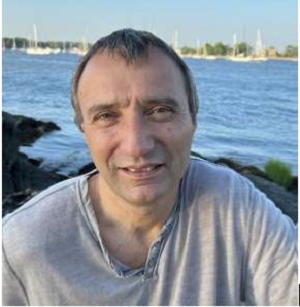
Professor at Sorbonne University, Paris, France. Olivier Adam is an expert in bioacoustics. He studies the sounds emitted by cetaceans to describe their populations and societies. He is currently working on 3 scientific projects: studies of mother-calf relationships in humpback whales, analysis of social interactions in sperm whales, and description of underwater soundscapes (https://sciences.sorbonneuniversite.fr/portraits/olivier-adam).
He is the author of over 70 articles published in scientific journals.
He is also co-organizer of various international conferences, including the DCLDE (https://dclde2024.com/) and the World Humpback Whale Congress (https://www.hwwc.mg). He also attaches great importance to scientific mediation, in newspapers, TV and radio (https://www.radiofrance.fr/personnes/olivier-adam) and exhibitions, such as Baleinopolis at the Palais de la Porte Dorée in Paris (https://youtu.be/gRbQR77TrRM), the photo exhibition L'Océan c'est Vivant! presented for the 1st time in 2022 on the quays of the Seine in Paris, and still touring France and abroad.
Olivier Adam was also a member of the scientific committee for the Musicanimale exhibition at the Philharmonie de Paris in 2022-23 (https://philharmoniedeparis.fr/fr/activite/exposition/24601-musicanimale), then Ile-de-France ambassador for the Fête de la Science 2024. bioacoustics, signal processing, pattern recognition, ketology.
Kay TETZLAFF
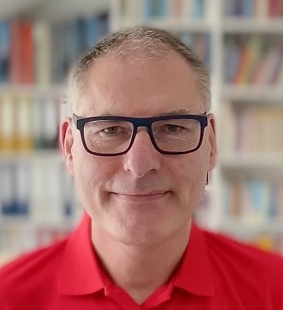
Kay completed his medical training in Hamburg, Germany, obtaining his MD degree in 1987.Subsequently, he pursued sub-specialty training and acquired certifications in Internal Medicine, Pulmonology, Allergy, and Occupational Medicine. During his tenure with the German Navy, Kay served as the Diving Medical Officer at the German Naval Medical Institute, where he advanced his scientific research in lung physiology and diving medicine. He then transitioned to the pharmaceutical industry, where he held various roles in Germany and the US focused on the clinical development of new molecular and biological entities for respiratory and immune-mediated inflammatory diseases.In academia, he joined the medical faculty at Eberhard-Karls-University Tübingen in 2004 and became an adjunct Professor of Medicine in 2014. His research interests include the respiratory effects of diving and cardiopulmonary changes associated with breath-hold diving.
Guillaume Costalat
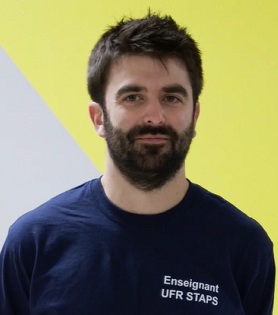
Senior lecturer at the Université Jules Verne of Picardie, I conduct research in exercise physiology, with a particular interest in extreme environments. My work focuses on two main areas: the first focuses on the influence of thermal environments (hot vs. cold) on post-exercise recovery mechanisms in healthy subjects. The second aims to gain a better understanding of cardio-respiratory and metabolic responses to oxygen deprivation: voluntary apnea in athletes, and exposure to normobaric hypoxia (simulated altitude) in obese subjects.
URL researchgate: https://www.researchgate.net/profile/Guillaume-Costalat
Antonis Elias
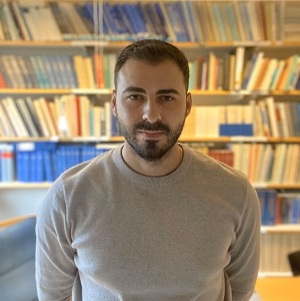
Dr. Antonis Elia is an Assistant Professor in Environmental Physiology at the Karolinska Institute. His research explores the acute and long-term effects of breath-hold activities, as well as the independent, interactive, and iterative effects of environmental stressors on physiological responses in healthy humans.
Costantino Balestra
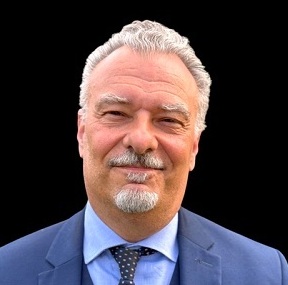
Born Udine, Italy, one of identical twins (his brother is a tax lawyer), ‘Tino’ moved to Belgium after primary school, completing his schooling at the S.H.A.P.E. International School. He completed a master’s degree in 1986, then started research in neurophysiology, successfully defending in 1995 his thesis on the physiology of human fatigue. An annexed thesis was on Doppler analysis of venous gas emboli in disabled SCUBA divers (Claudio, the twin brother is tetraplegic). This started his investigations on diving and other environmental physiology issues. He now teaches physiology, biostatistics, research methodology and biomechanics, as well as other subjects. Since 2000, Tino has been the Director of the Environmental, Occupational and Ageing Physiology Laboratory and a full time professor at the Haute Ecole Bruxelles-Brabant (Brussels) – as well as Université Libre de Bruxelles (Motor Sciences) part of the Pôle Universitaire Bruxelles-Wallonie. He is also part of the anatomy and morphology research unit of VUB (Vrij Universiteit Brussel), based on 10 years previous experience teaching anatomy. He lectures on the pathophysiology of diving on several internationally recognized courses. He is Vice President of DAN Europe for research and education and Past President of European Underwater and Baromedical Society (EUBS) still head of the Scientific and Education committee, Vice President of the Belgian society of Hyperbaric and Subaquatic Medicine Society. Tino has co-authored Five books, one on “Patent Foramen Ovale and the diver”, one on “The science of Diving” (in English) and another on communication skills (in French), as well as being author or co-author of over 150 scientific publications and contributing sections to several book on diving physiology and field research on divers. He is a member of the Editorial Board of several journals and a reviewer for a number of other journals. On the non-professional side, Tino speaks 4 languages, being fluent in Italian, French and English, teaches trampoline, gymnastics and plays the saxophone. He is a rebreather diver and Diving Instructor Trainer for PADI, CMAS and CEDIP.
Jérôme Badaut
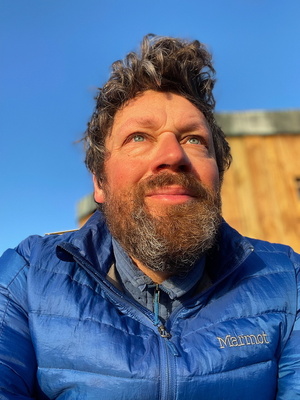
Biography: Environmental neuroscience: Neurophysiological response of vertebrates of environmental constraints
I have been trained in preclinical neurosciences with an interest of the blood-brain interface in normal and pathological situations. My current research projects propose to explore the effects of the environmental constraints on the brain development and animal behavior. One goal is to characterize how the exposure to environmental constraints (chemical pollutants, urban noise, temperature…) affect the blood-brain “border” functions (also named blood-brain barrier, BBB) during brain development, and their consequences on animal behaviors. The BBB plays a key role in the brain functions and homeostasis by protection against toxins and pathogens; while regulating the delivery of nutriments and cell signaling molecules from the periphery. We are combining investigations in controlled conditions with field work in “natura”. Our research will be a support to guide the development of strategies to reduce environmental risks on biodiversity and public health in the “one health” concept.
Anna Taboni, MD-PhD
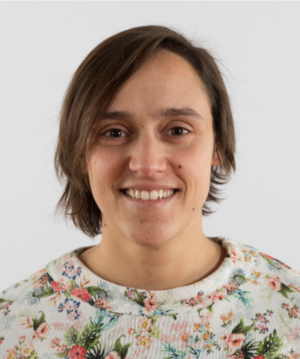
My research focuses on cardiorespiratory responses to exercise, breath holding and hypoxia. In particular, I am interested in the mechanisms of short-term blood pressure regulation.
ORCiD: 0000-0002-8198-6574
Guido Ferretti
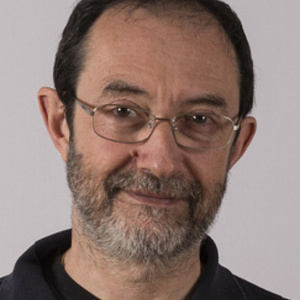
Guido Ferretti qualified as a doctor in Milan in 1981, specialising in sports medicine in 1984. He moved to Geneva in 1985 to become an assistant in the Department of Physiology, now the Department of Fundamental Neurosciences, and then a senior assistant in 1988. He was appointed a lecturer in the Faculty of Medicine at the UNIGE in 1997, and has held a professorship in physiology at the University of Brescia since 2001. He was appointed associate professor in the Department of Fundamental Neurosciences at the Faculty of Medicine in 2014, and has been affiliated to the Department of Anaesthesiology, Pharmacology, Intensive Care and Emergencies since 2015.
Guido Ferretti's research, supported by the SNSF since 1997, has focused on cardiorespiratory responses and regulation during exercise, followed by the study of nervous regulation of the cardiovascular system. Since 1995, he has been working with the European Space Agency (ESA), where he has taken part in a number of international space research programmes. Guido Ferretti is also heavily involved in training, and teaches a number of courses at both undergraduate (respiratory and pulmonary physiology, in particular) and postgraduate levels.
ORCID : https://orcid.org/0000-0001-7592-0416
Oleg Melikhov
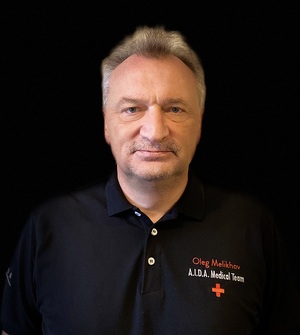
Chairman of the Medical and Science Committee, AIDA International. Research interests: physiology, medicine and safety of breath hold diving.
https://www.aidainternational.org/BoardAndMembers
Juan M. Valdivia-Valdivia, MD, FAANS, MBA.

Chief of Neurosurgery . St Joseph’s hospital (Main). Tampa FL. USA. Communications Director at Medical & Science Committee AIDA International. Medical Director. United States Freediving Federation USFF.
Founder. UNU Freediving Foundation. EIN no. 92-2117039
Mathilde Lombard
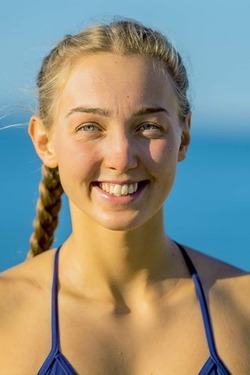
As a PhD student (soon to be registered), I worked during my master's degree on optimising the performance of basketball players using the technique of voluntary hypoventilation with low lung volume. During this study, I studied the technique of voluntary hypoventilation with low lung volume, which is an apnoea technique that consists of blocking your breathing, after a passive exhalation, making an intense effort and then exhaling again before resuming your breathing. I used this technique during sprint training with basketball players. Before and after training, the athletes carried out a RAST (running based anaerobic sprint test) in which running time, stride parameters, cardiac parameters and ventilatory parameters were measured. We noted an improvement in performance on the RAST test, with a better running time for the subjects who had carried out the training using the hypopventilation technique. This performance may be linked to the significant improvement in ventilation, with the athletes in the hypoventilation group improving their ventilation by 134% compared with the PRE test value, while the control group only improved by 63%. Improvements were also found in ground contact time, which was reduced when running on the RAST test. This study showed that training repeated sprints in voluntary hypoventilation at low lung volume improved running time, ventilation and ground contact time on a RAST test.
https://www.linkedin.com/in/mathilde-lombard-aba332241/
Egi Murat
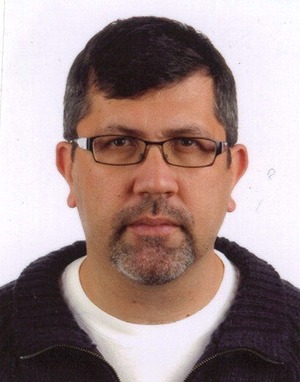
S. Murat Egi was born in Istanbul, on March 12th, 1965. He is an Electrical Engineer (BSc), and completed his MSc and Ph.D. studies on Biomedical Engineering. He is a diving Instructor since 1986 and certified more than 2000 diver at different levels. He organized the first "National Underwater Science and Technology" meeting in 1996 in Istanbul. He planned and directed 7 high altitude diving expedition where 500 dives were performed at altitudes up to 4000m. He completed his Ph.D. studies in 1999 on Altitude Decompression. He worked as consultant for diving equipment manufacturers sucs as Oceanic, Hollis, Aqualung. He directed Istanbul University Department of Underwater Technology for three years (from 2000 to 2003) and was the Head of Department of Computer Enginnering at Galatasaray University (2022-2025). He has three patents on diving relted technologies and managed more than 15 National and 8 European Union projects related to the development of innovative diving technologies. His main research interests are mainly Rebreathers, Decompression Modelling, Underwater technology, Biomedical Engineering aspects of diving.
murat.egi@gmail.com
Michail Keramidas
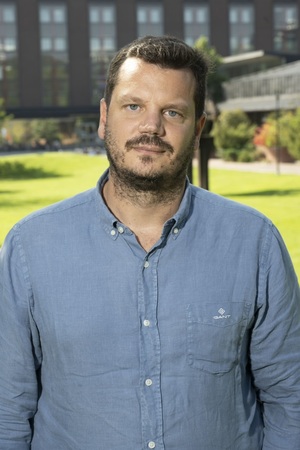
Michalis is currently an Assistant Professor of Environmental Physiology at the Kapodistrian University of Athens, Greece. His research is focused on the independent and interactive effects of environmental factors (i.e. high and low: gravitoinertial (G) load, ambient pressure, and temperature) on physiological responses in humans, with special reference to thermoregulatory, cardiorespiratory, muscular and vestibular functions musculaires et vestibulaires.
ORCID link: https://orcid.org/0000-0002-7440-2171.
Audrey Palma
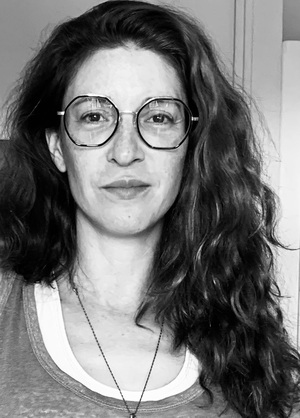
Audrey Palma is a sociologist and freedivers, with a degree in clinical psychology, a Masters in coaching and a specialism in mental health. She discovered freediving in 2012 and put an end to her career as an international sociologist to devote herself to it. From 2012 to 2019, she dived in many of the world's seas, training, taking part in competitions, winning the Coupe de France in static apnea and regularly standing on the podium at the French championships. In 2015, she joined the French squad for the AIDA World Championships in static and dynamic freediving without fins. At the same time, she trained as a freediving instructor and opened a club in Montpellier, as well as a structure in the Caribbean. She travelled and met a large number of freedivers in many seas of the world, who provided food for thought. In 2024, her essay ‘Apnea, an adventure in consciousness’ was published by L'Harmattan. She then freed herself from all her obligations to return to her first areas of research and intervention in mental health.
Anne Henckes
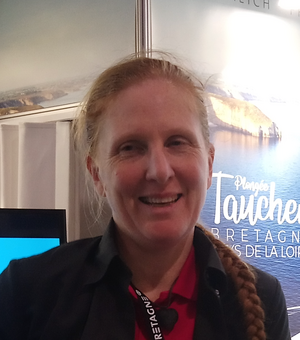
Medical Doctor at Centre Hospitalier Universitaire de Brest, French Institute of Health and Medical Research.
